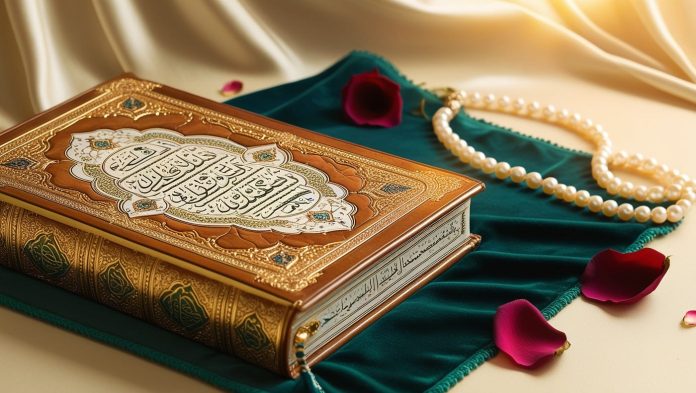The wisdom contained within the Quran transcends time, offering a guiding light to those seeking clarity in an increasingly complex world. As society grapples with confusion, moral ambiguity, and division, the lessons imparted by the Quran stand out as enduring principles that can shape personal character, strengthen relationships, and unify communities.
At its heart, Quranic wisdom emphasizes a balance of justice, compassion, self-reflection, and accountability. These values are not theoretical ideals but practical directives for living a meaningful and righteous life.
The Quran provides a robust ethical framework, urging believers to embody integrity and sincerity. In Chapter 16, Verse 90, the Quran declares:
“Indeed, Allah commands you to uphold justice, to do good, and to give to your relatives, and He forbids immorality, bad conduct, and oppression. He admonishes you so that perhaps you will be mindful.”Justice, in the Quranic sense, goes beyond legality; it is deeply personal and moral. It begins within the individual, where self-honesty serves as the foundation for integrity in society. This internal accountability, known as taqwa (God-consciousness), ensures that ethical conduct is driven by conviction rather than compulsion.
The Quran also places compassion at the center of human interaction. Mercy and empathy are not optional virtues but essential components of a healthy society. The very opening verse of the Quran, “In the name of Allah, the Most Compassionate, the Most Merciful,” underscores this fundamental idea. Prophet Muhammad (peace be upon him) exemplified this compassion in his dealings with the poor, the vulnerable, and even those who opposed him. This message of mercy is particularly needed today, where apathy and division threaten social bonds.
Equally significant is the Quran’s invitation to intellectual engagement and reflection. Faith in the Quranic context is not blind belief but a synthesis of reason and spirituality. In Chapter 3, Verse 190, the Quran urges:
“Indeed, in the creation of the heavens and the earth, and the alternation of the night and the day, there are signs for those of understanding.”By encouraging contemplation of the natural world, the Quran fosters a harmonious relationship between knowledge and belief. This emphasis on reflection is particularly relevant in an age of rapid scientific and technological advancements. Quranic wisdom champions humility in knowledge, reminding us that human understanding, no matter how advanced, has limits.
Forgiveness and resilience are also central themes in the Quran. Life’s hardships, betrayals, and disappointments are inevitable, yet the Quran offers a healing path. Chapter 42, Verse 43 states:
“And whoever is patient and forgives—indeed, that is of the matters [worthy] of resolve.”Forgiveness, often seen as a weakness, is elevated by the Quran as an act of strength and courage. In modern psychology, the benefits of forgiveness — reducing emotional burdens and promoting well-being — echo this ancient wisdom. The Quran provides a blueprint for resilience by encouraging patience and a generous heart.
In addition, the Quran defines humanity’s role as stewards (khalifa) of the Earth. This stewardship extends beyond environmental care to encompass ethical management of power, wealth, and resources. Chapter 6, Verse 165 reminds us:
“And it is He who has made you successors upon the earth…”In an era of environmental crises and inequality, the Quran’s message of responsibility and accountability resonates powerfully. It calls for a balanced and sustainable approach to how we treat our planet and each other.
Ultimately, the wisdom of the Quran is universal. While it is the sacred text for Muslims, its principles — justice, compassion, reflection, forgiveness, and stewardship — are shared human ideals. These teachings offer practical solutions for modern challenges and promote harmony and moral clarity in a world often bereft of both.
This timeless guidance is not simply meant to be read but lived. It challenges us to strive for moral and spiritual growth, urging us to be better individuals and, consequently, build better societies. The Quran’s wisdom is a beacon that has guided millions for over fourteen centuries and continues to shine brightly today, offering answers to those who seek justice, peace, and meaning.









